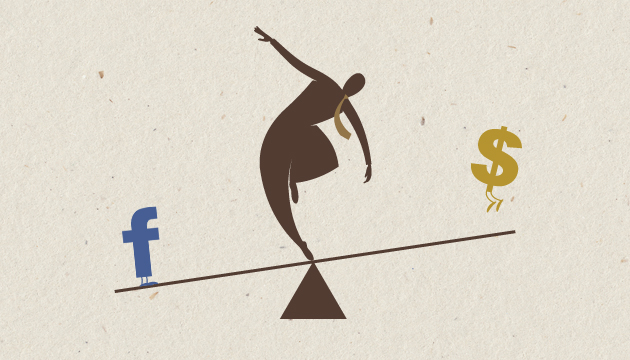Facebook may be the most popular social network to date, but many people are already predicting its approaching end. In 2012, Iron Capital founder Eric Johnson made a bold claim that by 2020 Facebook will no longer be relevant and that, even if it still exists, for all intents and purposes it will disappear, comparing it to today’s Yahoo! According to Johnson, Facebook’s nemesis is mobile technology, as he suggests Facebook will always be a “big, fat website.”
While Eric Johnson’s predication is not far fetched, in actuality, especially in light of the recent launch of Facebook Home, it seems that Facebook’s aspirations are indeed in the mobile technology arena. However, does that mean Facebook is safe from extinction? It is still unclear.
In the meantime, it seems that Facebook usage is declining. A recent survey conducted by Pew Internet & American Life Project shows that two-thirds of Americans have taken a multi-week break from Facebook and that 27 percent are planning on reducing their activity on it in 2013.
So what is going on? Is this the first sign of decline of social media as we know it? The safest thing to say is that only time will tell, but cracks are definitely starting to show.
Unlike Eric Johnson’s prediction, I do not think lack of technological relevance is the reason for these cracks. I actually think the reason is much deeper, and even though it is easier to see the changes in Facebook, every social network that is similar in its model to Facebook will be affected.
Social networks, in their essence, are a communication tool between private people; however, in an attempt to be more profitable and grow, social networks are forced to add another factor into the equation—companies, marketers, and brands. This addition has appealed the delicate balance on which social networks are built—users were willing to let Facebook in on their conversations, but now too many “agents” are eavesdropping.
The way I see it, intimacy is Facebook’s biggest challenge.
Individual users’ communities have grown so big that there is no way they can also be intimate. While in real life, most people do not have 1,000+ friends and family members, on Facebook they often do. In the current state, Facebook users are bombarded with information about the lives of their 1,000 acquaintances—information that might have no relevance or meaning to their own lives. In addition, they are reluctant to share information about their own personal life, knowing it will reach so many people. As a whole, rather than cultivating real, intimate, and meaningful relationships, Facebook is becoming a way for people to satisfy the need for voyeurism.
The intimacy challenge has become even greater in the past year since Facebook became a public company. Some background: Facebook’s community size and segmentation potential have made it an ideal tool for marketers, and Facebook’s leaders decided to seize the opportunity in it. Before going public, they had to prove to investors that the company could generate a steady stream of profits; Facebook’s executives changed the company’s focus toward marketing. The meaning of this is that people’s newsfeed pages and personal information are no longer private; people feel that they lost control over their most private information.
What does this mean to you, the SMB owner? Nothing you didn’t already know. Creating trust and intimacy with clients is a balancing act, and overstepping the boundaries can be devastating. From a social-marketing standpoint, we will have to wait and see what lies ahead, but I think that unless Facebook is able to conceal the marketing-platform aspect of its business, the lack of intimacy will bring it down.
Related Posts
|
|
|







